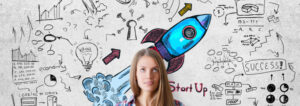Get your values in place, so you can put your customers first: Jane Storm on Connect Group PLC's transformation
- 8 Min Read
Jane Storm sat down with HRD Connect to talk us through Connect Group’s titanic transformation, and how any people leader can replicate this change in their business.
- Author: Michael Hocking
- Date published: Aug 28, 2019
- Categories

When embarking on a major business transformation, it’s often tempting to run before you can walk. But to achieve the kind of success that Jane Storm did as CPO at Connect Group, one thing has to come first – values. Ensuring your employees feel looked after, engaged and on board for every step of the journey starts with the values at the heart of your organisation.
Jane Storm sat down with HRD Connect to talk us through Connect Group’s titanic transformation, and how any people leader can replicate this change in their business.
Tell me a little bit about the story of your time with Connect Group. What made you realise that things had to change?
The business had demerged from WHSmiths 12 years ago, and, had gone through a journey of acquisition by the time I joined. Two and a half years ago, the business had decided to have a change in strategy, which meant that we were going to either sell, or close, a number of divisions that weren’t core to the business in the future. As a result, we really needed to repurpose the organisation, certainly from a colleague perspective, we had to really focus on making this a great place to work, and to create a greater, customer-centric team.
We realised that customers were not necessarily front of mind, and that, from a people perspective, the business was not really up to date from a colleague perspective. We hadn’t made the right changes in the investment of the organisation. They had very long serving colleagues and long serving leadership. There’s a huge amount of disruption in the external market, but our colleagues have never been in that external market because they have all been with the business forever.
The reason I am passionate about this is I think that there are a lot of organisations that don’t have a lot of money, with long serving colleagues and leadership, that are being disrupted are suddenly realise that their practices are out of date. But they’re in turnaround and they’re not blessed with growth or the cash to try and make the right changes. So, the challenge that we had was, how do we modernise the business from a colleague perspective, while operating our operating model.
I talk a lot about offering colleagues employability, because, when you’re in uncertain times, it can be very unsettling for your teams. These colleagues have been with us for 20 or 30 years, so it’s very hard for them to understand the disruption externally. Suddenly, businesses are not performing and their skills and experiences aren’t up to date with what’s been happening in the outside world.
We went through a lot of changes in modernising the operating model for the people function. As well making sure our employees are employable.
It seems like more of an investment in your people with a forward-looking aspect, as opposed to solely focusing on their role within the company.
A lot of our investment in our employees has really been through changes in operating models. Whether that’s changes to the people operating model, or how we run our customer service, or even management. Things have been done in the same way for many years, and so it was important for us to take our colleagues through a journey of change and modernisation. That’s not easy, and of course we’ve had lots of changes at the top of the organisation, too, which the business hadn’t experienced for decades.
How do you go about transforming the mindset of an entire organisation?
I think the biggest shift we saw was in the launch of our six values. We saw a really big shift in mindset once we were really clear on our values and how we were going to live them. One of the core values was openness, which really helped staff talk to colleagues about expectations. So many people have been here for decades, so they needed to talk to people openly about the changes taking place. We’ve also created values around creativity, which was really about curiosity, about thinking of doing things in a different way, an agile way. Because it was quite an inward focused organisation with layers of hierarchy who had all been here forever, and while we’re still very proud of that that, it’s quite unusual to have an executive team that have all got sixty years in the business.
How about transforming leadership? It must have been a crucial element in steering a new direction for your organisation.
Our model is about servant leadership, designed from the bottom, up. This means first considering how many people there are in customer-facing roles, and therefore how many supervisors and managers are needed, not the other way round. Both our philosophy of servant leadership and the way we designed the organisation have been critical in transforming our leadership. This meant removing hierarchy, formality and power, while encouraging better communication and giving our employees the courage to speak up. Fundamentally, what we are saying is, “We’re in this together.”
I had just come from Tesco, where we had gone through our own journey. One of the key points there was casual dress; Tesco isn’t a bank, it has customer assistants in stores in t-shirts – and distribution centres, as we do in Connect Group PLC – so why are managers walking around suited and booted while their colleagues are wearing t shirts and safety gear? It felt incompatible with servant leadership. We call it, “Dress for your Day”. Sometimes, people might want to dress smartly because they have a certain meeting they are attending, which makes complete sense, but we’re encouraging people to think about what is appropriate to wear in the workplace. It’s the seemingly small things that make the biggest difference, like removing parking spaces with names on, introducing free tea and coffee because our colleagues are in cold warehouses and they’re earning minimum wage.
The smaller things make a huge amount of difference, not only to how you feel, or how you feel about the people who employ you, but, crucially, how much do you want to make me feel valued for my work.
I wouldn’t say we’re at the front line, but we’re well on track. When I came to Connect Group PLC, you could never really work out what their values were. They were never really discussed and they weren’t available in print to take a look at. It’s interesting that you see a lot of organisations that can’t articulate their values or what’s important to them. I think that, from a people perspective, transformation success is about mindset, leadership, and leading from the front. Those values connect, employees can make sense of them. Initially, some of our colleagues thought that we should have customer centricity in there, but customer centricity is a behaviour, not a value. You need to have your values in place before you can put your customers first.
What will be the next steps in this transformational journey?
The most important thing is sustaining the journey. I think what’s next is that we will continue to make changes to the operation model of the business, embedding the strategy, continuing with the operation model changes, and continue to sustain all of our cultural changes.
I’ve seen lots of examples of changes that aren’t sustained because they aren’t reflected in the values or the work. This hasn’t been my idea, it’s been our idea. It’s been built with lots of engagement from our colleagues, so it’s all sustainable without me. It will continue. Therefore, what’s next is continued strategic change, as well as continued investment in the employability aspect, so that people have the skills & the experience of a new operating model.
Whether they decide to spend the next 20 years of their career at Connect Group PLC, or would like to do something else with their career, they’re employable. That’s sort of where we started with the journey, because I found lots of colleagues who weren’t completely up to date in their skillsets. The way that they were working, and the operating of the business was outdated, and therefore the skills and experience they had were outdated too. A huge part of this big modernisation of the organisation has simply been bringing it into what you’d expect in a modern logistics firm.
The key is to continue to really reinforce those messages, make sure we don’t get distracted, we don’t lose focus, and that we continue to add value to colleagues, make them feel that they have a say in the business and that they’re empowered. This concept of stepping up, making decisions, taking responsibility and playing your part is something that people always doubt, but until you actually give your employees permission to be creative and agile in how they work, it’s a challenge for them. We’re seeing it now, and sustaining that focus is really the objective going forward.









